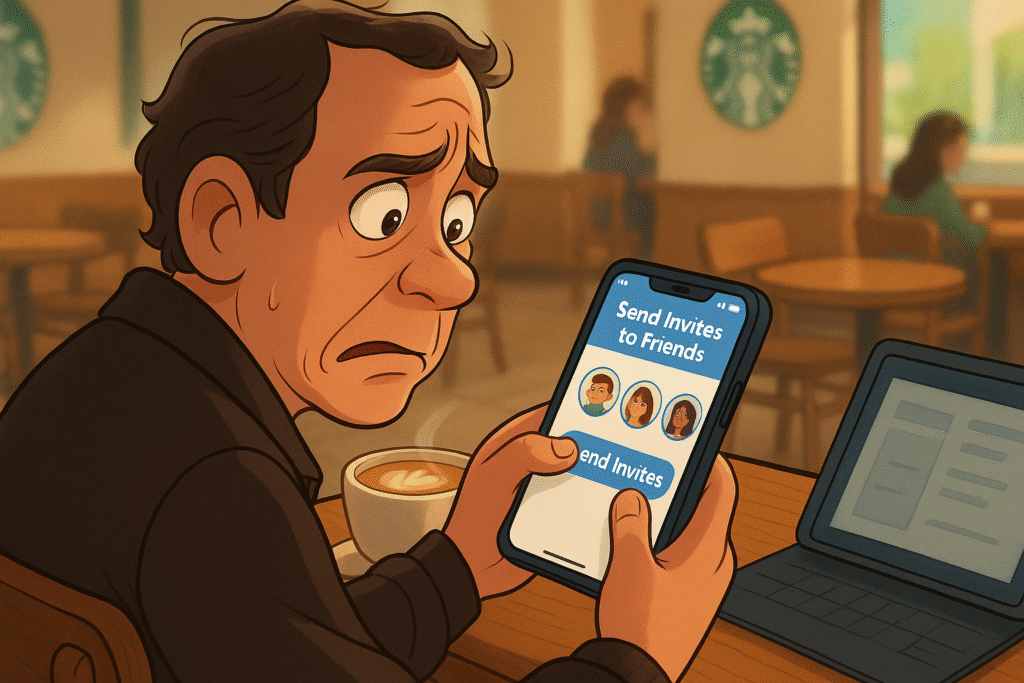
How losing 95% of users at onboarding kills exponential growth before it starts — and the psychology of those first five clicks
I’m consulting on onboarding design for a client whose new app depends on viral growth.
If we lose 95% of users at step one, we’ve blown any hope of exponential growth.
No pressure, right?
This isn’t a typical app where you can hemorrhage users and still succeed through paid acquisition.
When organic growth is the strategy, every single step becomes life or death.
Step one has to be irresistible. People don’t need to do much, but they gotta be highly intrigued.
Step two asks for contact info — massive friction point.
Now we need to have built real trust. In two easy steps…
By step five, we’re asking them to invite friends.
That’s where things get terrifying for users.
Nobody wants to look like a fool to their social circle.
The fear isn’t just “will my friends like this app?”
It’s “will my friends think I’m a moron for recommending sh*t?”
Reputation and pride are on the line.
Every invitation risks a “you’re blocked, pal” response that damages real relationships.
This is why most referral programs crash and burn. They underestimate the social risk people take when recommending anything.
Your users aren’t simply evaluating your product. They are really evaluating how it reflects on them.
In I Need That, I write about how our ancient dog brain prioritizes social acceptance over almost everything else.
Nothing triggers anxiety stronger than potential social rejection.
The trust-building strategy: Show users exactly what their friends will experience before they invite anyone.
Let them preview the invitation message.
Demo the friend’s journey.
Prove the experience will make them look smart, considerate and cool, not like a sucker trying to exploit friendships to climb a leaderboard.
Most importantly: Give them an easy way to back out if something goes wrong.
“Tried this new app but it’s not ready yet” is recoverable.
“I recommended something terrible” damages credibility permanently.
Remember this: When asking for social sharing, you’re always asking people to risk their reputation on your unproven product.
Treat that responsibility like the massive privilege it is.
How do YOU help users feel confident about recommending your product?
Forward this to someone building viral features, or reach out to my team of product marketing strategists at Graphos Product.
